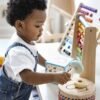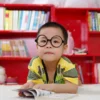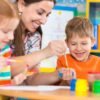![Mt. Juliet Day School’s Dynamic Curriculum: A Fusion of Music, Art, and Literacy Beyond the ABCs Introduction to Mt. Juliet Day School Mt. Juliet Day School emerges as a vanguard of progressive education, redefining the contours of early childhood learning. This esteemed institution is not just […]](https://dayschools.org/mtjuliet/wp-content/uploads/sites/6/2023/07/Mt.-Juliet-Day-School-9.jpg)
Table of Contents
Introduction to Mt. Juliet Day School
Mt. Juliet Day School emerges as a vanguard of progressive education, redefining the contours of early childhood learning. This esteemed institution is not just an educational establishment; it is a crucible of creativity and intellectual development, where traditional pedagogical boundaries are not only crossed but re imagined.
At the core of Mt. Juliet Day School’s philosophy is a dynamic curriculum, a carefully crafted educational tapestry that interweaves music, art, and literacy. This fusion is not a mere amalgamation of subjects but a thoughtful integration, designed to stimulate and nurture every facet of a child’s development. The curriculum is a living entity, constantly evolving and adapting, ensuring that each child’s educational journey is as unique as they are.
The school’s approach is a harmonious blend of structured learning and creative exploration. In this environment, music transcends being a mere subject and becomes a language through which children understand the world around them. It is used not just for its aesthetic value but as a powerful tool in developing cognitive abilities, enhancing memory, and fostering emotional intelligence.
Art, in this innovative curriculum, is more than just a means of expression. It is a catalyst for cognitive development, a window to view the world through multiple perspectives. Through a variety of artistic mediums, children at Mt. Juliet Day School learn to communicate ideas, solve problems creatively, and develop fine motor skills. Art projects are carefully designed to align with other areas of learning, thereby enriching the overall educational experience.
Literacy, a cornerstone of education, is approached with a fresh perspective at Mt. Juliet Day School. Moving beyond the conventional methods of teaching reading and writing, the school employs a myriad of innovative techniques. Storytelling, interactive reading sessions, and writing workshops are integral parts of the curriculum, making literacy a journey of discovery and joy rather than a mundane educational requirement.
The school’s educational model is a testament to its commitment to holistic development. It recognizes that true learning is not just about acquiring knowledge but about developing a love for learning. In this nurturing environment, children are not just students; they are young explorers, artists, musicians, and storytellers, embarking on a journey of lifelong learning.
This article aims to provide a comprehensive insight into the unique educational model of Mt. Juliet Day School. It delves into the various aspects of the dynamic curriculum, shedding light on how it shapes the minds and hearts of young learners. Through this exploration, we will uncover the essence of what makes Mt. Juliet Day School a beacon of innovative education and a model for schools striving to go beyond the conventional realms of teaching and learning.
The Essence of a Dynamic Curriculum at Mt. Juliet Day School
The dynamic curriculum is the cornerstone of modern educational philosophy, particularly in early childhood education, where adaptability and responsiveness are key. This approach is characterized by its fluidity, its capacity to evolve in tandem with the changing educational landscape and, most importantly, its ability to cater to the diverse and individual needs of each student. In this context, Mt. Juliet Day School stands as a paragon, embodying an educational model that is not just adaptive but also deeply enriching and engaging.
At Mt. Juliet Day School, the dynamic curriculum is not a static set of guidelines but a living, breathing entity. It is continuously reshaped and refined to align with the latest educational research and the evolving needs of students. This approach ensures that the curriculum remains relevant and effective, providing a learning environment that is both challenging and supportive. The school recognizes that each child is unique, with distinct learning styles, interests, and capabilities. Therefore, the curriculum is designed to be flexible, allowing for personalized learning experiences that foster individual growth while promoting collective advancement.
The dynamic nature of the curriculum at Mt. Juliet Day School also means that learning is not confined to the traditional classroom setting. The school environment is a tapestry of diverse learning spaces – from art studios and music rooms to outdoor learning areas – each offering unique opportunities for exploration and discovery. This variety ensures that education at Mt. Juliet Day School is a holistic experience, nurturing not just academic skills but also social, emotional, and creative abilities.
Integrating Music into Learning
In the realm of this dynamic curriculum, music plays a central role. At Mt. Juliet Day School, music is revered not just as an art form but as a universal language that resonates with children, offering a unique way to enhance cognitive development and learning. The school’s music program is intricately woven into the fabric of the curriculum, ensuring that it is not perceived as a standalone subject but as an integral part of the overall educational experience.
The incorporation of music into learning at Mt. Juliet Day School is multifaceted. Rhythmic patterns and musical structures are utilized to enhance mathematical skills, helping children understand concepts such as counting, sequencing, and pattern recognition in a more engaging and intuitive way. Music also plays a crucial role in developing language and literacy skills. Songs and rhymes enhance phonemic awareness, while the rhythm and melody of music aid in memory retention and recall, making it easier for children to remember information.
Moreover, music education at Mt. Juliet Day School is not limited to cognitive development. It is also a means of fostering emotional intelligence and social skills. Group musical activities promote teamwork, empathy, and communication, as children learn to listen to each other and collaborate. The act of creating and enjoying music together can be a powerful tool in building a sense of community and belonging among students.
The school’s music program is meticulously designed, with a careful selection of activities and materials that cater to different age groups and learning stages. From simple sing-alongs and rhythm games for younger children to more complex musical compositions and performances for older students, the program ensures that every child’s musical journey is both challenging and rewarding.
Art as a Medium of Expression and Learning at Mt. Juliet Day School
At Mt. Juliet Day School, art is elevated to a platform of profound educational significance. It is not merely a subject to be taught; it is a medium through which a myriad of essential skills and attributes are nurtured. Art, in its diverse forms, becomes a conduit for expression, a tool for cognitive development, and a means of emotional and social learning.
The school’s approach to art education is holistic and immersive. Children are encouraged to delve into a wide array of artistic mediums, from traditional painting and drawing to digital art, sculpture, and mixed media. This exposure to different forms of art not only cultivates artistic skills but also broadens their creative horizons, encouraging them to think outside the proverbial box. In these art sessions, children are not just learning techniques; they are learning to express their thoughts, emotions, and perspectives in tangible forms.
Art at Mt. Juliet Day School is also a means of enhancing fine motor skills and hand-eye coordination. Activities like cutting, sculpting, and drawing require precision and control, aiding in the development of these crucial physical skills. Moreover, art is intertwined with other areas of the curriculum, such as science and mathematics, demonstrating to children the interconnection of knowledge and the applicability of art in various contexts.
Furthermore, the school’s art projects are designed to be reflective and responsive. They often serve as a mirror to the students’ experiences, thoughts, and emotions, allowing teachers to gain insights into their students’ inner worlds. This aspect of art education is particularly valuable in fostering emotional intelligence, as children learn to articulate and understand their feelings through creative expression.

Advancing Literacy Beyond Traditional Methods
Literacy, at Mt. Juliet Day School, is redefined and elevated beyond the conventional confines of reading and writing. The school recognizes that literacy is the foundation upon which all other learning is built and, as such, approaches it with a blend of innovation and reverence. The goal is to make literacy not just a skill that children need to acquire but an adventure that they are eager to embark upon.
The school moves away from rote memorization and repetitive tasks, which often make literacy learning tedious. Instead, it employs a variety of engaging and interactive methods to teach reading and writing. Storytelling workshops are a cornerstone of this approach. Here, children are not just passive listeners but active participants, encouraged to create and narrate their own stories. This method not only enhances their language skills but also stimulates their imagination and creativity.
Interactive reading sessions are another innovative approach used by the school. These sessions are designed to be dynamic and engaging, often involving group discussions, role-playing, and creative interpretations of stories. Such activities make reading a social and enjoyable experience, fostering a love for literature and reading in children.
The school also integrates literacy into other areas of the curriculum, demonstrating its practical application in various contexts. For instance, children might write a story in an art class or read about science topics, thereby understanding the relevance and importance of literacy across different subjects.
The Synergy of Music, Art, and Literacy at Mt. Juliet Day School
The educational philosophy at Mt. Juliet Day School is anchored in the belief that the integration of music, art, and literacy can lead to a more profound and comprehensive learning experience. This fusion creates a synergy, a dynamic interplay where each discipline enriches the others, leading to an exponential enhancement in learning and intellectual development.
In this unique educational milieu, music, art, and literacy do not exist in isolation; they are interwoven into a cohesive curriculum. For instance, a music class might involve writing lyrics, which integrates literacy, or exploring the cultural context of a piece of music, which ties in with art history. Similarly, art projects might be based on themes from literature, or storytelling sessions might include creating visual art or musical accompaniment. This interdisciplinary approach not only makes learning more engaging and relevant but also fosters a deeper understanding and appreciation of each subject.
This synergy extends beyond academic learning; it influences the development of a well-rounded intellect. Students at Mt. Juliet Day School learn to see connections between different forms of knowledge and expression. They understand that creativity, whether in music, art, or writing, is not bound by rigid categories but is a fluid and interconnected process. This understanding nurtures critical thinking, problem-solving skills, and a flexible mindset, which are essential attributes in the 21st century.
Technology Integration in the Curriculum
In recognizing the pivotal role of technology in contemporary education, Mt. Juliet Day School has adeptly woven digital tools into its curriculum. This integration is not about replacing traditional teaching methods but enhancing them, ensuring that technology serves as a bridge to greater understanding and creativity.
The school employs a variety of technological tools to complement and enrich the learning experience. Interactive learning apps are used to make concepts more accessible and engaging. For example, a music app might allow students to compose their own melodies, providing a hands-on understanding of musical concepts. Digital storytelling tools enable students to create and share stories, combining literacy with digital literacy skills.
Moreover, technology is used to facilitate collaboration and communication. Online platforms allow students to work on projects together, share ideas, and receive feedback, fostering a sense of community and teamwork. In art classes, digital media offers an additional dimension of creative expression, allowing students to experiment with design, animation, and other forms of digital art.
Importantly, the use of technology at Mt. Juliet Day School is always pedagogically driven. It is carefully selected and integrated into the curriculum to support specific learning objectives. Teachers are trained not just in the technical aspects of these tools but also in how to use them to enhance learning and creativity.

Parental Involvement and Community Engagement
Parental involvement and community engagement are pivotal components of the educational ecosystem, serving as pillars upon which the holistic development of students is built. At Mt. Juliet Day School, we understand that education extends far beyond the confines of the classroom. It is a collaborative journey involving not only dedicated educators and eager learners but also the indispensable support and participation of parents and the wider community.
Parental involvement is more than just attending parent-teacher conferences or volunteering for school events; it’s about forging a meaningful partnership between home and school to ensure the success and well-being of every student. By actively engaging parents in the educational process, we create a supportive environment where families feel valued, informed, and empowered to play an active role in their child’s learning journey. Whether it’s through regular communication channels, workshops on parenting skills, or involvement in decision-making processes, we strive to cultivate a strong sense of parental ownership and investment in their child’s education.
Simultaneously, community engagement initiatives serve to enrich the educational experience by leveraging the resources, expertise, and diverse perspectives present within the broader community. Through partnerships with local businesses, organizations, and institutions, we create opportunities for students to apply classroom learning to real-world contexts, fostering a deeper understanding of civic responsibility and interconnectedness. From service-learning projects that address community needs to mentorship programs that connect students with professionals in various fields, these initiatives not only enhance academic outcomes but also instill essential life skills such as empathy, collaboration, and problem-solving.
Moreover, community engagement fosters a sense of belonging and pride among students, as they see themselves as active contributors to the betterment of their community. By participating in events, initiatives, and collaborative projects, students develop a sense of agency and responsibility, recognizing their role as positive agents of change in society.
Measuring Success: Outcomes and Achievements
Measuring success in education extends far beyond mere academic achievements; it encompasses the holistic development of students into well-rounded individuals equipped with the knowledge, skills, and character traits necessary for success in all aspects of life. At Mt. Juliet Day School, we recognize the multifaceted nature of success and employ a comprehensive approach to assessment that goes beyond traditional metrics.
Academic achievement certainly plays a vital role in measuring success, and we utilize a variety of assessment methods to gauge students’ mastery of core subjects such as mathematics, language arts, science, and social studies. These assessments include standardized tests, classroom assignments, projects, presentations, and examinations. However, we understand that true learning goes beyond memorization and regurgitation of facts; it involves critical thinking, problem-solving, creativity, and effective communication. Therefore, our assessments are designed to not only measure content knowledge but also to evaluate students’ ability to apply that knowledge in real-world contexts, analyze complex information, and articulate their understanding effectively.
Moreover, we place a strong emphasis on the development of essential skills and competencies that are crucial for success in the 21st century, such as collaboration, creativity, communication, and digital literacy. Through project-based learning, collaborative assignments, and experiential learning opportunities, we assess students’ progress in these areas and provide feedback to help them further develop these skills.
In addition to academic and skill-based assessments, we also recognize the importance of social-emotional development in measuring success. Therefore, we incorporate strategies for assessing and fostering students’ social-emotional competencies, such as self-awareness, self-management, social awareness, relationship skills, and responsible decision-making. Through regular check-ins, reflective exercises, and social-emotional learning curriculum, we monitor students’ emotional well-being and provide support as needed to help them navigate challenges and develop resilience.
Future Directions and Continuous Improvement
In the dynamic and ever-evolving landscape of education, adaptability and innovation are key to ensuring that students receive the highest quality of education. At Mt. Juliet Day School, we are deeply committed to continuous improvement, recognizing that staying stagnant in the face of change is not an option. Instead, we embrace the challenge of exploring new methods and approaches to education, always striving to stay ahead of the curve and set new benchmarks for excellence.
One of the cornerstones of our commitment to continuous improvement is our dedication to staying informed about emerging educational trends, research findings, and best practices. We regularly engage in professional development opportunities, attend conferences, and collaborate with experts in the field to gain fresh insights and perspectives. By staying abreast of the latest developments in education, we ensure that our teaching practices remain relevant, effective, and responsive to the evolving needs of our students.
Moreover, we recognize that curriculum development is a dynamic process that requires ongoing evaluation and refinement. Our curriculum development team works tirelessly to review existing curriculum frameworks, identify areas for enhancement, and integrate new content and pedagogical approaches that align with our educational philosophy and objectives. Whether it’s incorporating interdisciplinary learning experiences, integrating technology into the curriculum, or infusing global perspectives into our lessons, our goal is to provide students with a well-rounded and future-ready education that prepares them for success in an increasingly interconnected and complex world.
Furthermore, we believe that meaningful feedback and input from stakeholders, including students, parents, teachers, and community members, are essential for driving continuous improvement. We actively solicit feedback through surveys, focus groups, and advisory committees, listening attentively to diverse perspectives and ideas. By fostering a culture of collaboration and transparency, we ensure that everyone has a voice in shaping the direction of our school and contributing to its ongoing improvement.
In addition to refining our curriculum and teaching practices, we also prioritize investments in infrastructure, technology, and resources that support student learning and well-being. Whether it’s upgrading classroom facilities, expanding access to digital resources, or enhancing support services for students with diverse needs, we are committed to providing an environment that fosters excellence, creativity, and growth.
Conclusion
Mt. Juliet Day School’s dynamic curriculum is a testament to the power of innovative education. By fusing music, art, and literacy, the school has created an educational model that is not only effective but also inspiring. It stands as a shining example of how education can be transformed, ensuring that learning goes beyond the ABCs and nurtures the minds of tomorrow’s leaders.







Leave a Reply